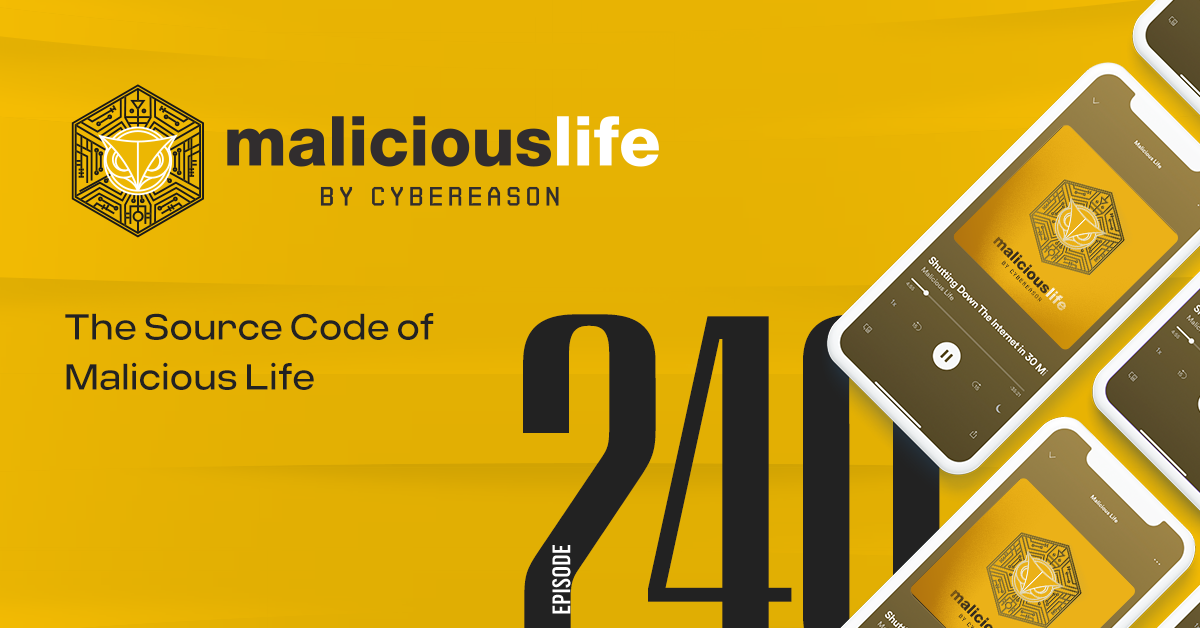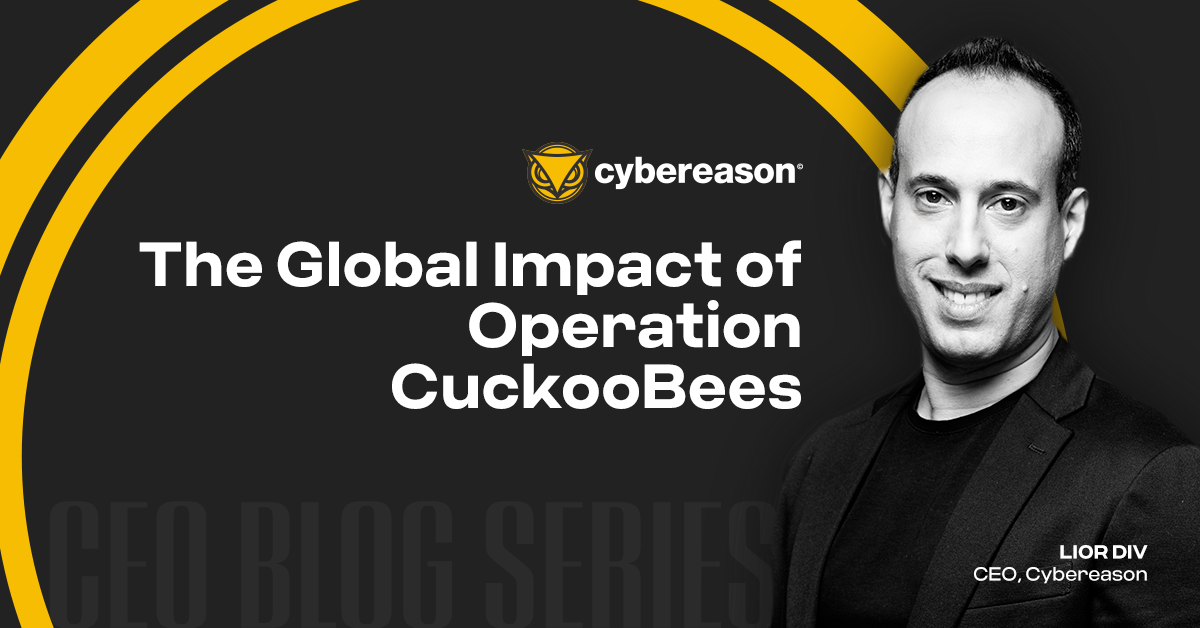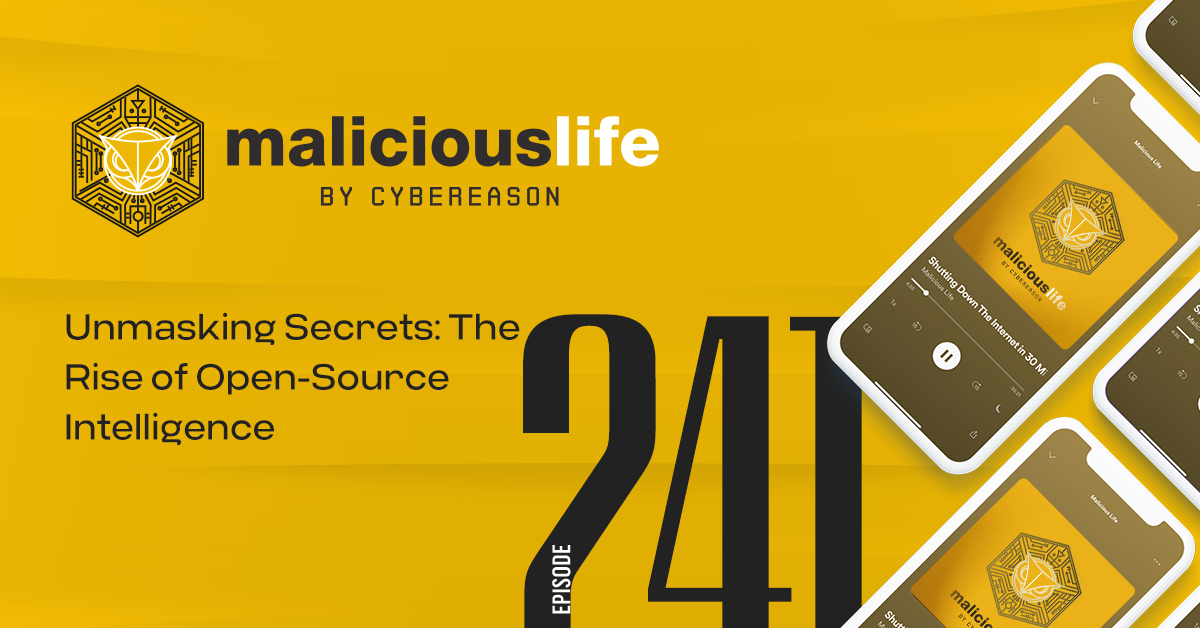Nation-states hack each other. This is the reality we live in and have for some time. The difference is some attacks are more dangerous than others, with a global impact. I’m proud of the research the Cybereason team has unveiled this week on Operation CuckooBees. This research is different. This campaign goes beyond nation-state espionage and has a ripple effect with consequences that impact the global economy.
Operation CuckooBees
Our Operation CuckooBees report is the result of a 12-month investigation, in which our researchers discovered an intricate and sophisticated campaign to steal intellectual property from companies around the world. Based on our analysis, we are confident that Winnti—a Chinese state-sponsored APT group—is responsible.
The campaign targeted manufacturers in North America, Europe, and Asia across a range of industries, including Defense, Energy, Aerospace, Biotech, and Pharma. Operation CuckooBees employed complex tactics that allowed it to remain elusive. Other security researchers have discovered elements of the campaign, but our researchers were patient and unraveled the entire playbook. The most alarming revelation is that the companies weren’t aware they were breached. We uncovered evidence that Operation CuckooBees goes back to at least 2019, giving Winnti free unfiltered access to intellectual property, blueprints, sensitive diagrams, and other proprietary data for years.
A spokesperson from the Chinese Embassy denied any connection--claiming to CNN that China will never support or condone cyberattacks and attempting to distract from the issue by accusing the United States of government-sponsored hacking instead. Of course, that is what I expect a nation-state to say.
Far-Reaching Impact
At face value, an operation like this seems to have less impact than standard malware or cybercrime attacks. When a company is hit with a denial-of-service attack that effectively shuts their network down or a ransomware attack that encrypts data and locks them out of their systems, the effects and cost are felt immediately and there is a sense of urgency to recover from the attack and resume normal operations.
Intellectual property theft feels like more of a nuisance. Nobody wants their sensitive or proprietary data stolen, but it doesn’t have an immediate effect or shut the company down, so it is treated as a lower priority. The reality, though, is that intellectual property theft can have a far-reaching impact that is vastly more costly than other cyberattacks.
Companies invest millions in research and development (R&D) to produce innovative processes and products and gain an edge over competitors. That edge is erased when one of those global competitors steals intellectual property. Suddenly, rather than having an advantage, you have to compete in the market against your own innovation from a competitor that can undercut you on cost because they don’t have R&D expenses to recoup.
National Security
Prior to publishing the research on Operation CuckooBees, we briefed the US Federal Bureau of Investigation (FBI) and the US Department of Homeland Security (DHS) because there are also more dangerous implications.
Aside from the economic threat, a nation-state adversary with access to blueprints, formulas, diagrams, and other proprietary data can leverage that information for more nefarious objectives as well. Stolen intellectual property may reveal information that enables the adversary to infiltrate or compromise organizations.
Defending against Intellectual Property Theft
This isn’t the first cyberattack linked to China and it won’t be the last. I stand by the Cybereason research team and the attribution that Winnti is behind Operation Cuckoobees.
While cyber espionage and intellectual property theft by a sophisticated nation-state adversary are different than a malware compromise or ransomware attack, detecting it and defending against it isn’t. I have found that the vulnerabilities that are most commonly found in campaigns such as Operation CuckooBees are exploited because of unpatched systems, insufficient network segmentation, unmanaged assets, forgotten accounts, and a lack of multi-factor authentication.
Although these vulnerabilities may be easy to fix, day-to-day security is complex and it’s not always easy to implement mitigations at a grand scale. Defenders should follow MITRE and/or similar frameworks to make sure they have the right visibility, detection, and remediation capabilities in place to protect their most critical assets—whether the attack is a ransomware attack or intellectual property theft by a sophisticated state-sponsored APT group.





